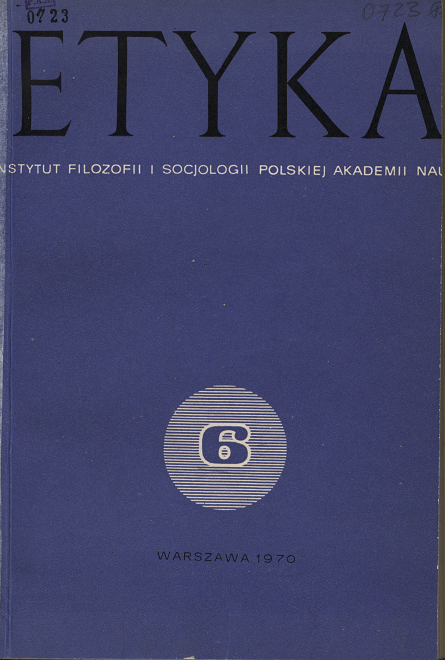Katolicka doktryna prawa natury
Abstract
After a brief outline of the history of the catholic doctrines of natural law the author concludes that although the doctrine itself has not changed, changes in its official interpretation and in the conclusions drawn from it are traceable. A rigid, invariable catholic natural law, universally binding for all times, all societies, and all men, has transformed into a natural law of variable content. It has become variable depending on both the socio-historical circumstances and on the different situations and different mutual relations of various groups in the society. In this way the function of law has changed. Whereas to Pius XI natural law was still an expression of a static attitude towards society contributing to the restitution of a statical medieval system and securing the control of morality by the church, nowadays it should fulfil the two following functions: owing to its variability it should facilitate the dynamics of development, and owing to the fundamental invariability of its basic principles it should secure only a single consistent direction of development.Downloads
Published
Issue
Section
License
Works published in ETYKA are available under the Creative Commons Attribution No Derivatives 4.0 International Licence (CC BY-ND), which entails acknowledgement of authorship without derivative works. Under this licence, Authors keep their copyrights and agree that their works can be used again legally for any purpose, including commercial ones, except for the creation of derivative works, without the need to obtain previous consent of the Author or publisher. The articles can be downloaded, printed, copied and disseminated; under the condition that the authorship is indicated accordingly, together with the place of original publication. The Authors preserve their copyrights to the above-mentioned works without any limitation whatsoever.



